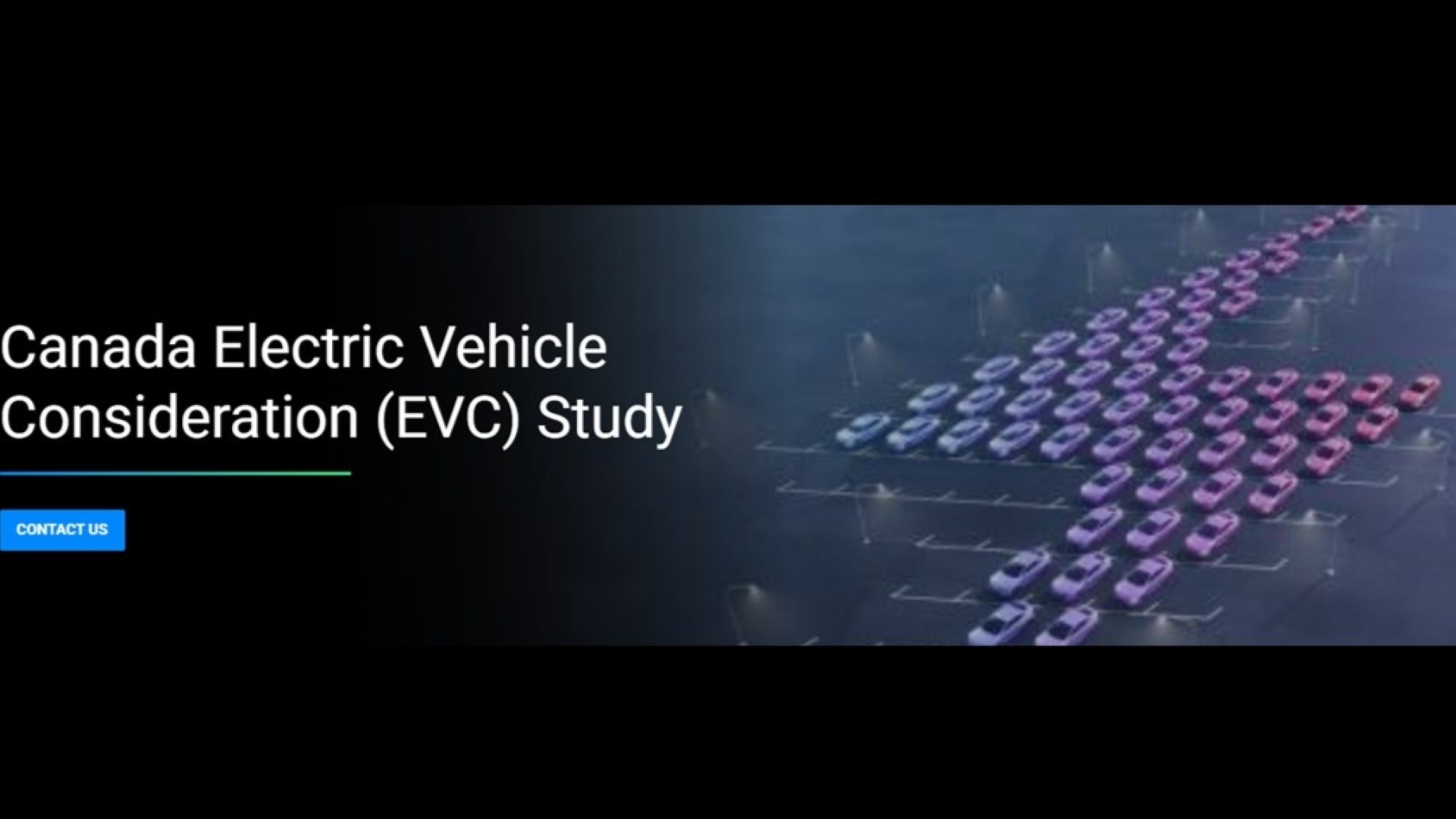Pause in iZEV rebate dampens enthusiasm of potential Canadian EV buyers

Screenshot courtesy of J.D. Power.
By subscribing, you agree to receive communications from Auto Remarketing and our partners in accordance with our Privacy Policy. We may share your information with select partners and sponsors who may contact you about their products and services. You may unsubscribe at any time.
The indefinite pause in Canada’s Incentives for Zero Emissions Vehicles rebate program hasn’t significantly affected the number of Canadians considering buying an electric vehicle — but it has made a big difference in how seriously they’re considering it.
J.D. Power’s 2025 Canada Electric Vehicle Consideration Study found 28% of new-vehicle shoppers in Canada said they’re “very likely” or “somewhat likely” to consider an EV for their next purchase, down one percentage point from the 2024 study. But 42% of that group said the loss of the $5,000 per vehicle iZEV incentive would have a negative effect on how likely they are to shop for an EV, while just 28% said it would have little to no effect.
The study, which measured responses from 3,979 new-vehicle shoppers in March and April, pointed out that EV consideration dropped by 8 percentage points year-over-year in Quebec, where EV incentives were temporarily paused in February and March, while it rose 2 points in the rest of the country.
While the decline in overall EV consideration was negligible, it did mark the continuation of a trend, as the percentage has fallen from 34% in 2023. The Canadian level of 28% is less than half of that in the United States, where 59% said they are “very likely” or “somewhat likely” to consider an EV.
Car shoppers expressed very little faith that Canada will reach the government’s target of 100% zero-emission vehicle sales by 2035 for all new light-duty vehicles, as 75% of said they are “not at all confident” or “not very confident” that the goal will be achieved.
The study also found a trend in the brands being considered by potential EV buyers, with Tesla plummeting from No. 2 on the 2024 list to eighth this year. Replacing it are more traditional automakers, with Hyundai, Kia, Toyota, Ford and Chevrolet in the top five.
Subscribe to Auto Remarketing to stay informed and stay ahead.
By subscribing, you agree to receive communications from Auto Remarketing and our partners in accordance with our Privacy Policy. We may share your information with select partners and sponsors who may contact you about their products and services. You may unsubscribe at any time.
“Despite a great deal of volatility in the EV marketplace, overall consumer interest in EVs at a topline level is largely unchanged this year,” said J.D. Ney, director of J.D. Power Canada’s automotive practice. “What is noteworthy, though, is the reaction to the incentive landscape, and perhaps more important for manufacturers, the shift in consumer interest toward traditional brands. … Tesla, which had been among the top two EV brands considered in the study for the past four years, has fallen to eighth place among likely EV shoppers — down 16 percentage points year over year — while among all other brands combined the average gain is half a percentage point.”


